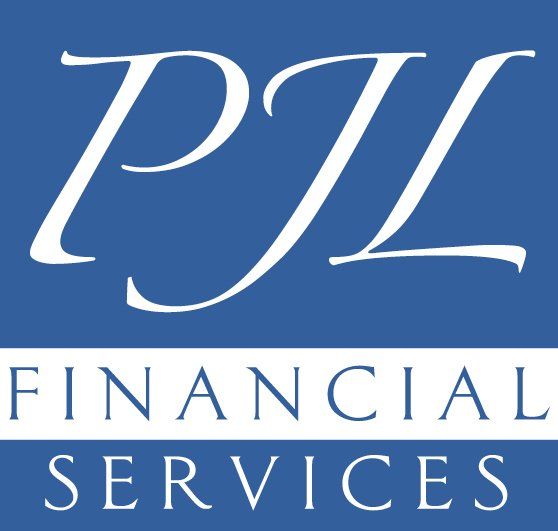The Information Hub
Are you ready for the changes in the new tax year this April?

We are fast approaching the end of this tax-year in April and while the financial landscape has begun to settle, questions which we would not have considered as key issues just 12 months ago are coming to the surface all due to the seismic events in 2022.
We are pleased to provide a quick summary of some of the key changes that will occur in the new tax-year, but first let's go back to the Autumn Budget where these changes were first announced.
Signs of spring are on the way, but personal tax-allowances remain frozen
In October 2022, the Autumn budget set out a number of tax freezes which may have gone unnoticed to many due to the chaos that preceded it. However, the policy of ‘fiscal drag’ meaning to freeze personal allowances for a number of years, is expected to be even more painful for many individuals due to higher than expected inflation and wage-growth. We expect these changes to hit all parts of society, from working age to pensioners through to the golden-ages.
The impact of these policies are becoming evident as just yesterday the UK public sector budget update posted a surplus in January of £5.4bn instead of the £7.8bn deficit which had been predicted. The UK government have been quick to announce that despite public borrowing for the financial year to January now being £30.6bn less than forecast at the time of the budget, there are no plans to radically change their short-term plans for personal tax affairs.
A quick summary of the key changes coming our way in April 2023. This list is not exhaustive and you should take full financial advice to understand how the changes may apply to your personal financial circumstances.
- Tax-free Personal Allowance (the amount of money you’re allowed to earn each tax-year before you start paying tax) is frozen again at £12,570.00 and not expected to change until April 2028
- Higher-rate allowance (the amount of money you’re allowed to earn each tax year at zero or basic rate of income tax of 20%) is frozen again at £50,270.00 and not expected to change until April 2028. It is estimated that up to four million more people could become higher-rate tax payers over this period
- Threshold for Additional rate taxpayers (reduced from £150,000.00 to £125,140.00)
- Personal Savings Allowance (frozen at £1,000.00 for basic-rate taxpayers and £500.00 for higher-rate taxpayers, £0.00 for additional rate taxpayers)
- Inheritance tax thresholds before your estate is assessed for inheritance tax (The nil-rate band of £325,000.00 and Residence nil-rate band of £175,000.00 are both frozen and not expected to change again until April 2028) The amount paid in IHT receipts to the UK Government is up 15% in the last 12 months
- Pension Lifetime Allowance (The maximum amount your pension pots can increase to without incurring a potential lifetime allowance tax charge) Frozen at the current limit of £1,073,100.00
- Dividend Allowance (the amount you can earn tax-free from dividend payments) cut from £2,000.00 to £1,000.00
- Capital Gains Tax Annual Exempt Amount (the amount paid on gains from the sale of shares, property that is not your main residence etc) Reducing from £12,300.00 to £6,000.00 in April 2023, and again to £3,000.00 in April 2024) The amount paid to the UK Government is already up 24% in 12 months prior to these changes coming into effect
- High Income Child Benefit Tax Charge (1% paid back for each £100.00 in excess of £50,000.00 adjusted net income)
There are two caveats to this, first with the Spring Budget on the horizon in March 2023, it is unlikely these changes will not go ahead but the ‘freezes’ may not go on for as long as currently legislated. Second, the next general election in the UK must be held no later than 24th January 2025, which may have an impact on personal tax rates with an Autumn Budget focus on luring in potential voters.
What can be done to mitigate these changes?
Much depends on your personal financial circumstances for instance:
- Pension contributions can be used to reduce the impact of high income child benefit tax charges as it is calculated on adjusted net income which takes into account pension contributions in the tax-year
- Salary exchange options with employers may allow you to reduce your gross taxable income falling into higher tax-brackets while maintaining the same amount of net-pay
- Deferring income across two tax-years for large one-off expenditures or sale of shares that may be subject to capital gains tax
- Use of suitable trust arrangements and gifting allowances to reduce a future potential Inheritance tax liability
- Using tax-efficient wrappers such as ISA’s and pensions
All of the above should be reviewed alongside full financial advice as they have benefits and drawbacks.
Interest rates – What goes up must come down?
The general expectation is that the Bank of England will continue to see a sustained downward shift in inflation rates, which is signalling that there may be only a small number of rate increases left before they may begin to use interest rates as a tool to stimulate demand in an economy teetering on the edge of a recession.
As of yesterday, Santander became one of just 12 lenders offering a sub 4.00% 5-year fixed mortgage product. We’d hesitate to bring out the champagne given the previously low mortgage rates on offer, however the general trend is downward having peaked at more than 6.50% in September 2022. This does raise questions around the benefits and drawbacks or regularly overpaying a mortgage liability now that interest rates are expected to remain higher over the medium to long term. The last 12 months have taught us that nothing can be taken for granted however.
There is greater concern for savers however, which is around the Personal Savings Allowance, introduced in 2016, to reduce the amount of individuals who were required to file self-assessed tax-returns for interest received on investments such as cash savings. As above, alongside many other tax thresholds, these are currently frozen. Back in 2016, getting £1,000.00 in interest from an instant access savings account would have required savings of around £200,000.00 in a year. However due to rising rates, savings of around £25,000.00 could provide you with over £1,000.00 in interest. Interest income in excess of this amount for basic-rate taxpayers may result in paying income tax at your marginal rate. For higher-rate taxpayers, the allowance is only £500.00 until you begin to pay income tax at your marginal rate.
The above demonstrates the government’s fiscal drag policy in real-terms, but also the changing landscape we find ourselves in with a higher interest-rates becoming the norm.
So, what can be done about it? Fortunately, although once again the limit is yes, you guessed it, frozen, you can contribute a generous £20,000.00 into an Individual Savings Account (ISA) in each tax-year. Whether it be cash savings or investments held outside of an ISA-wrapper, now is an excellent opportunity to review these as we approach the new tax-year. A single individual has the ability to put £40,000.00 in an ISA wrapper over the next 43 days, a couple has the ability to put £80,000.00 in an ISA wrapper over the same time period by utilising both tax-years. Furthermore, any unused allowances cannot be brought forward for ISA’s. One thing that has not changed however, is loyalty when it comes to your cash savings provider still does not pay, so shop-around.
If you would like to discuss the above, please feel free to get in touch. Our local, friendly team of Independent Financial Advisers will be happy to provide advice and suitable recommendations tailored specifically for you.
Give us a call on 01788 571122 and we will be more than happy to help.
The information provided is based on our current understanding of the relevant legislation and regulations and may be subject to alteration as a result of changes in legislation or practice. It does not constitute advice. All references to taxation are based on our understanding of current taxation law and practice and may be affected by future changes in legislation and the individual circumstances of the investor.
PJL Financial Services Limited are authorised and regulated by the Financial Conduct Authority.












